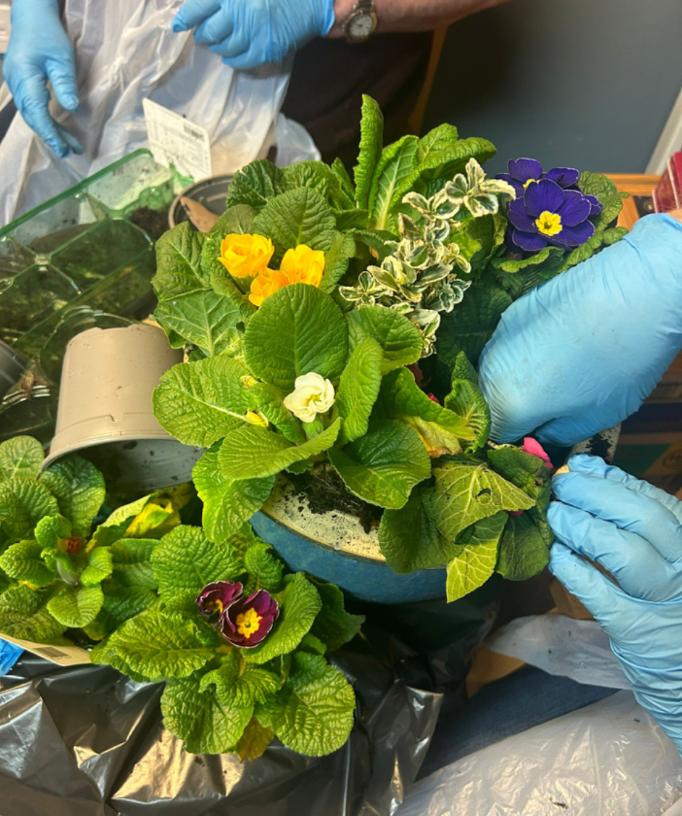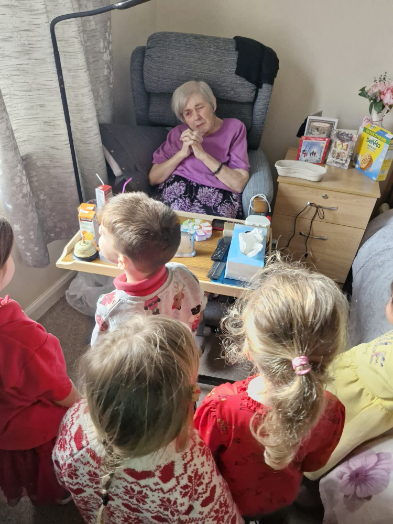The Importance of Respite Care for Family Wellbeing

What is Respite Care and Its Benefits
Respite care provides temporary relief for primary caregivers, enabling them to take a break from caregiving responsibilities. Respite care is perfect for families that usually care for a loved one but are going away on holiday or need a break and need temporary help for someone. Respite care is also a great way for someone to test out living in a care home and seeing it is right for you.
- Respite care can benefit both the caregiver and the person being cared for, providing variety, stimulation, and a change of routine.
- The benefits of respite care for a primary caregiver include reduced stress, improved mental health, and increased physical health when they take a break.
- The person receiving respite care will benefit from socialising with new people, and benefitting from a few weeks in a different environment.

How does respite care support work?
Respite care at Beechgrove is available for a minimum of three weeks. Our respite care service is unavailable for any time fewer than three weeks. This is because it takes time to ease a resident into a home, onboard them and make sure we have the caregiver support that matches their needs. After we arrange a room and respite care, we'll welcome the resident into our home.
The three weeks also give the new residents enough time to see if the experience is right for them and allow us to ease the residents in and back out to you. Making sure the resident is happy with the respite facility will give you peace of mind as you leave them with their respite carer and take your break.
The Importance of Respite Care for Family Caregivers
Being a full-time respite carer is a challenging responsibility and a break can benefit both the carer and the career. A short-term break using respite care can help a person's well-being.
- Respite care is essential for family caregivers to take a break and recharge, reducing the risk of burnout and improving their own health.
- Respite care allows family caregivers to focus on their well-being, spend time with other family members, and maintain their relationships.
Accessing Respite Care
Explore respite care options at our skilled nursing facilities and talk to our care providers today. Our in home care can help your own needs as well as a welcome change for the person you care about.
If a loved one is thinking about moving into full-time care but they aren't sure if it's right for them then respite services are a great way to try a home and experience how it works first-hand. A skilled nursing facility can arrange respite care that gives a person a fun-filled time, full of activity, great food, and great care.
Overcoming Obstacles to Respite Care
Admitting that you need a break can be difficult, but it’s essential for your well-being as a family caregiver. Researching and finding the right respite care option can take time and effort, but it’s worth it for the benefits of respite care.
- Trusting someone else to care for your loved one can be challenging, but respite care allows a member to see if it is right for them and let you know how they feel about assisted living facilities.
Supporting the Family Member Receiving Respite Care
Respite care can provide a safe and comfortable place for the person being cared for, giving family caregivers peace of mind.
Family caregivers can support their loved ones by involving them in the respite care planning process and ensuring their needs are met.
Family caregivers can also support their loved ones by maintaining open communication and providing emotional support during the respite care experience.
Respite Care at Beechgrove Care Home
Respite care is essential for family well-being, providing temporary relief for primary caregivers and benefiting both the caregiver and the person being cared for. At our care home in Lanark, we offer personalised respite care that’s designed to help you feel at home while you recover, recharge, and regain your independence. Whether you’re bouncing back from an illness, recovering after a hospital stay, or just need a short break, we’re here to make sure you feel cared for every step of the way. Please get in touch to book a tour of Beechgrove Care Home and find out more about our care.





